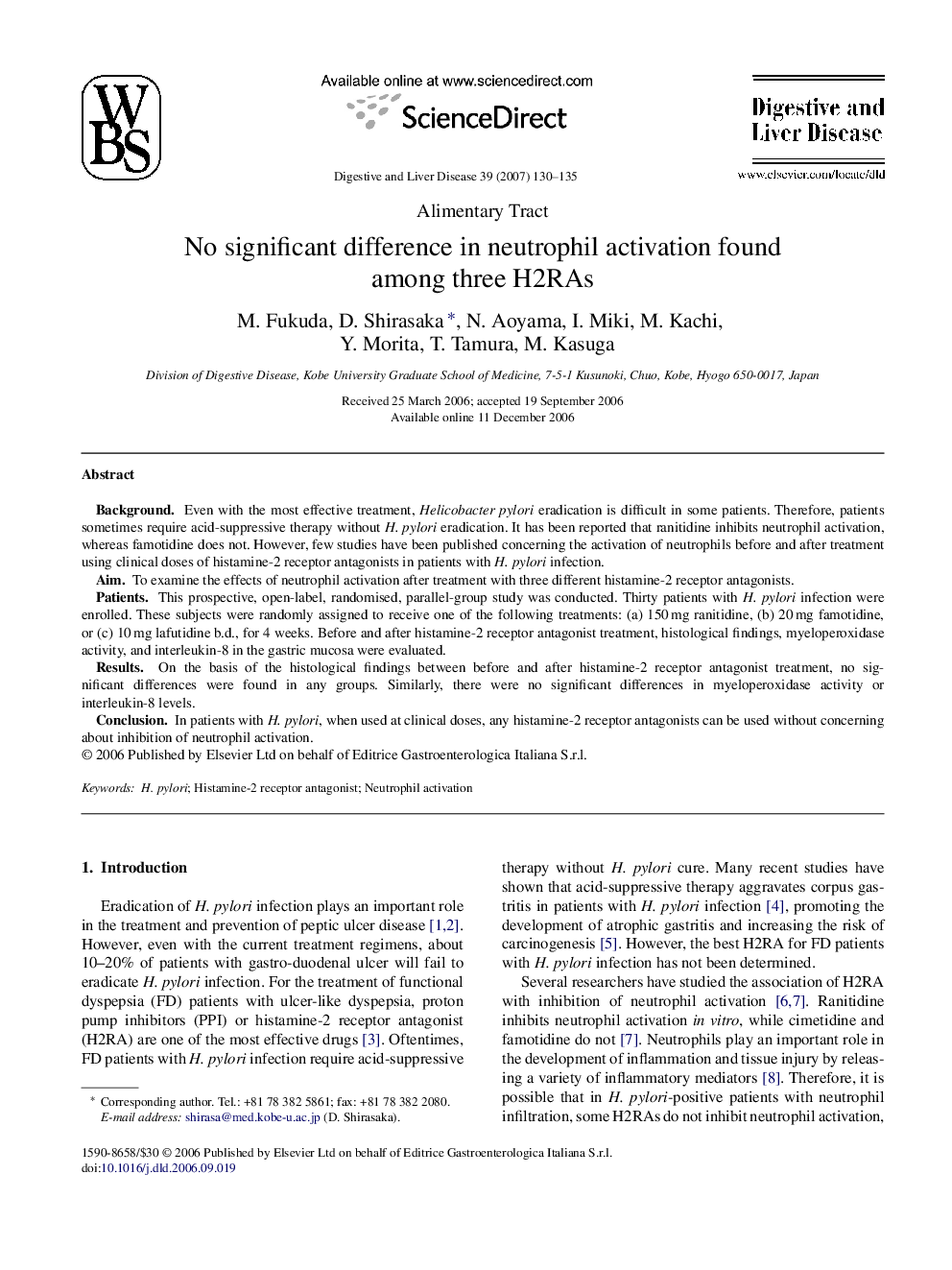| Article ID | Journal | Published Year | Pages | File Type |
|---|---|---|---|---|
| 3266564 | Digestive and Liver Disease | 2007 | 6 Pages |
BackgroundEven with the most effective treatment, Helicobacter pylori eradication is difficult in some patients. Therefore, patients sometimes require acid-suppressive therapy without H. pylori eradication. It has been reported that ranitidine inhibits neutrophil activation, whereas famotidine does not. However, few studies have been published concerning the activation of neutrophils before and after treatment using clinical doses of histamine-2 receptor antagonists in patients with H. pylori infection.AimTo examine the effects of neutrophil activation after treatment with three different histamine-2 receptor antagonists.PatientsThis prospective, open-label, randomised, parallel-group study was conducted. Thirty patients with H. pylori infection were enrolled. These subjects were randomly assigned to receive one of the following treatments: (a) 150 mg ranitidine, (b) 20 mg famotidine, or (c) 10 mg lafutidine b.d., for 4 weeks. Before and after histamine-2 receptor antagonist treatment, histological findings, myeloperoxidase activity, and interleukin-8 in the gastric mucosa were evaluated.ResultsOn the basis of the histological findings between before and after histamine-2 receptor antagonist treatment, no significant differences were found in any groups. Similarly, there were no significant differences in myeloperoxidase activity or interleukin-8 levels.ConclusionIn patients with H. pylori, when used at clinical doses, any histamine-2 receptor antagonists can be used without concerning about inhibition of neutrophil activation.
